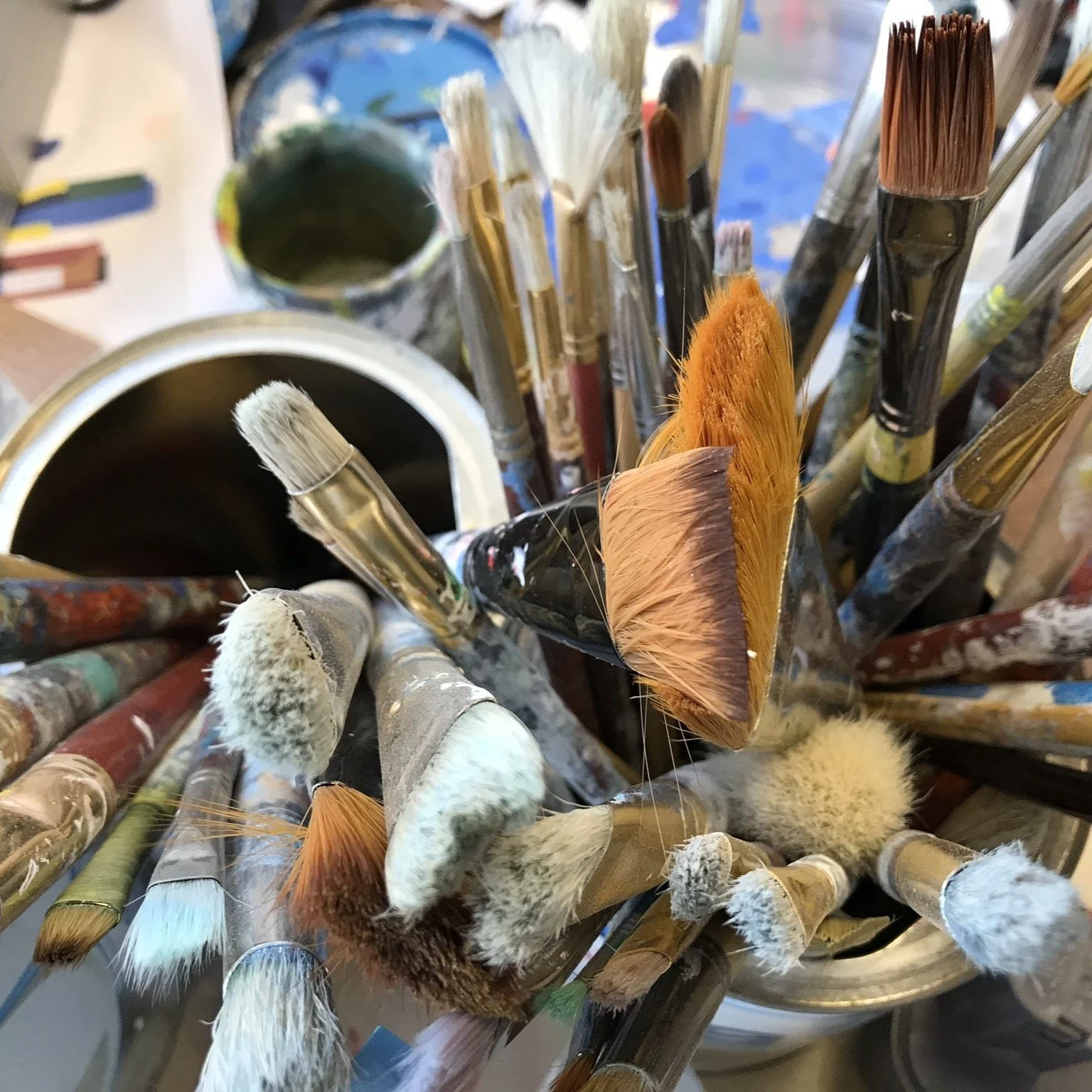Let’s be real - criticism, whether constructive or not, will be constant throughout your career as an artist. The fact of the matter is that, in order to get recognized, we have to put both our artwork and ourselves out there. And, the more we do that, the more we open ourselves to be vulnerable to other people’s opinions.
I personally love hearing constructive criticism of my work. I look at it as a form of advice and feedback, that helps me understand how to fix or improve something within my piece. For example, when you spend a lot of time looking at a piece, it’s not always easy for you to see that your anatomical proportions are a bit off. Or that your lighting and shadows don’t quite make sense in relation to your composition. Receiving feedback allows us to take a step back and look at our work objectively so that we master certain skills more easily.
When I attended Lyme Academy and took AP Studio Art in school, a few decades ago, critiques happened all the time. Sometimes they could be brutal, but I always learned a lot, and learned to not take others' opinions of my art personally. It's vital for young/beginning artists to learn how to take a critique and not have it destroy them, or wreck their self confidence.
Practicing constructive criticism helps you keep your emotions in check. We put so much emotion and energy into our work, so there’s nothing worse than receiving negative criticism that makes you feel demoralized, angry, or embarrassed. If you tend to become defensive whenever you’re in these situations, you should work on learning how to control yourself from immediately reacting emotionally.
Take a breath and ask yourself:
Why am I feeling this way?
Has the criticism hurt my pride or ego?
Is there an important lesson that I can learn from the criticism I have received?
I don't advocate for the brutal and tactless berating of anyone's work. But thoughtful suggestions and questions about how and why a piece is created are important for everyone who is learning.
Definitely make sure that the critique you’re receiving is actually trying to help you, and not just someone who's letting their own preferences shape your art. My advice here is, "Don't take criticism from someone you wouldn't take advice from". For the most honest, professional, and constructive feedback, try reaching out to:
Take a very special note of the last point. Don’t be afraid to ask other artists who you feel do well at the things you're lacking in and ask them how they approach those problems. This encourages the artist, as they get to speak on their successes and strengths, and since it's outside of the structured "critique sessions" the responses are likely to be more candid and helpful. The more skillful you become the more specialized the advice needs to be. When you're trying to break through from intermediate to the pro levels the pool of advice gets even smaller.
Self critiquing is also a very common practice for self-taught artists. There are many times I’ve asked myself questions like:
“Do these colors convey the feelings I want?”
“Does this technique appear to be hard or soft?”
“Should the shadow be darker?”
“Does this piece fit within the narrative of my collection?”
Ultimately, if you want your work to succeed in the long run you have to advocate for your own success. Look at this as the beginning step toward the career you're looking to dive into. A large part of the journey is building your network and some thick skin.
How have you handled constructive criticism in the past? Let me know the good, the bad, and the ugly in the comments below!






